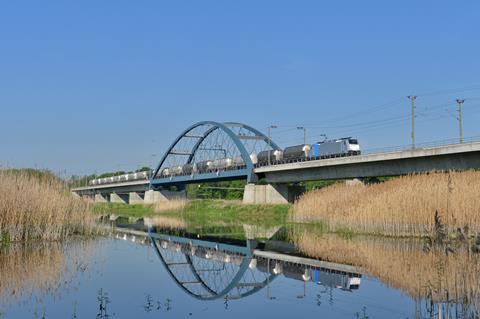
EUROPE: The Association of European Rail Rolling stock Lessors has called for the more co-ordinated deployment of ERTMS, changes to subsidy policies and measures to ensure life-time support of vehicles. It says these measures are needed to avoid disrupting procurement and to avoid rail pricing itself out of the freight market.
‘Lessors are calling for a regulatory framework that supports innovation without limiting the use of existing assets, that is stable and based on industrial capacities and serious cost-benefit analyses’, said Fabien Rochefort, Chair of AERRL which represents Akiem, Railpool, Beacon, Northrail, RENFE Alquiler, Cargounit, Nexrail, ELL and RS Lease.
Manifesto requests
In a manifesto launched on January 21, AERLL calls for the less ambitious but more co-ordinated deployment of ERTMS from a single ETCS Baseline 3.4 release, and to ensure the emerging FRMCS telecoms standard is natively backwards-compatible with existing standards to avoid market fragmentation and inefficiencies.
AERRL says ERTMS is currently ‘a patchwork of increasingly expensive technologies’ which is ‘holding back the development of rail transport’ rather than improving safety and capacity.
AERRL also says public funding for the procurement of newly built rolling stock should be ‘more strongly or explicitly forbidden’. It says rolling stock subsidies should only be used to equip existing vehicles with ERTMS, FRMCS and digital automatic couplers, to support research and development to facilitate cross-border operations, and to prepare for the end of diesel traction.
AERRL calls on the EU to require manufacturers to guarantee vehicle lifespans of at least 30 years after delivery, including access to spare parts, product expertise, obsolescence management, access to software source code and low cost and easy upgrades to comply with new regulatory requirements.
‘We need TSI regulations that support the use of existing locomotives and not limiting it, therefore innovations shall be on an optional basis and not binding to all vehicles’, says AERRL.
AERRL also calls for EU-level centralised ERTMS governance to strengthen co-operation between the different institutions and stakeholders, saying ‘ETCS upgrades are generating huge costs, that sometimes threaten the normal 30-year lifespan of assets’.
The manifesto says that non-discriminatory access to national funding should be strengthened by the mandatory use of English in state aid calls. However, it notes ‘we don’t believe that English could become a rail European common language in the short timeframe and we promote the idea that technology is mature enough to offer reliable and safe translation tools to ease cross border communication within the next decade.’
It also wants to address the skills gap in the rail sector by promoting training and re-skilling.

















